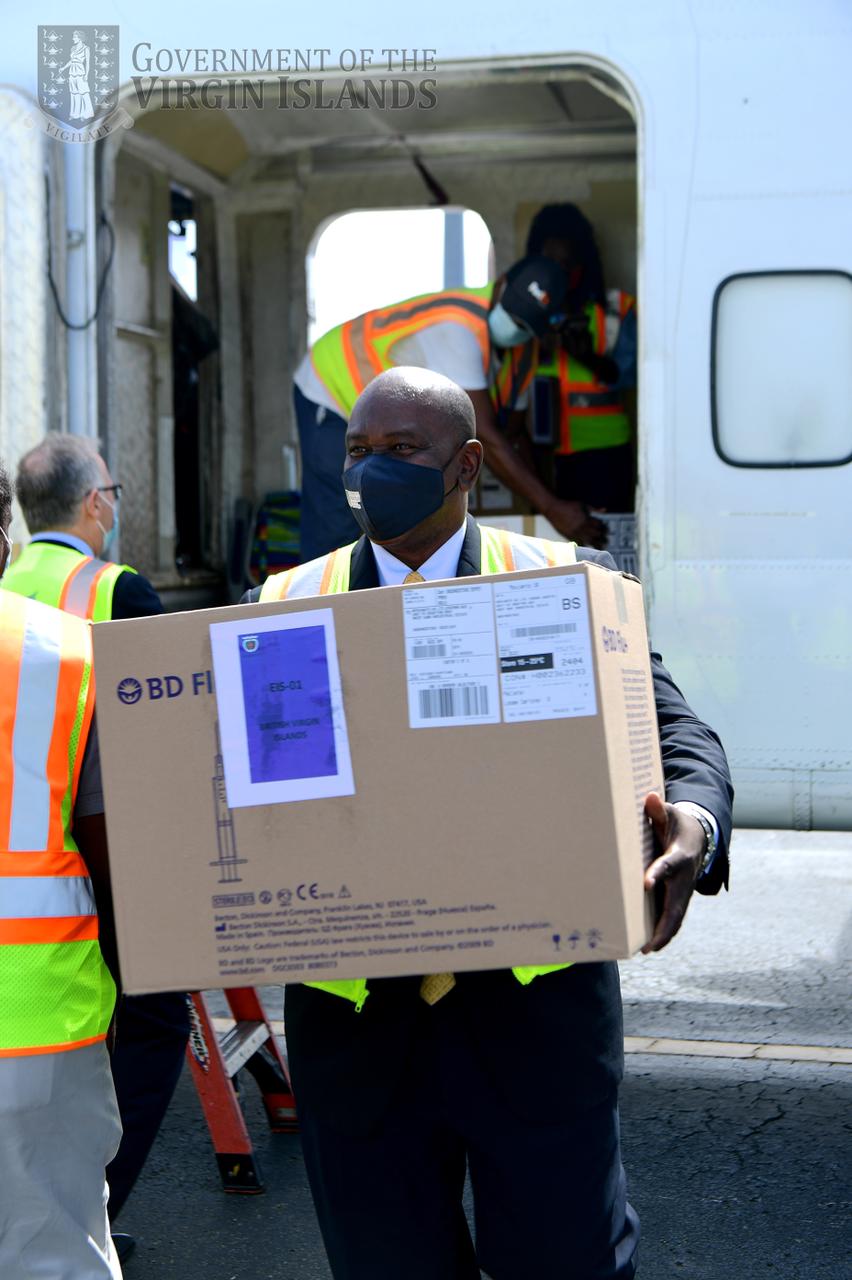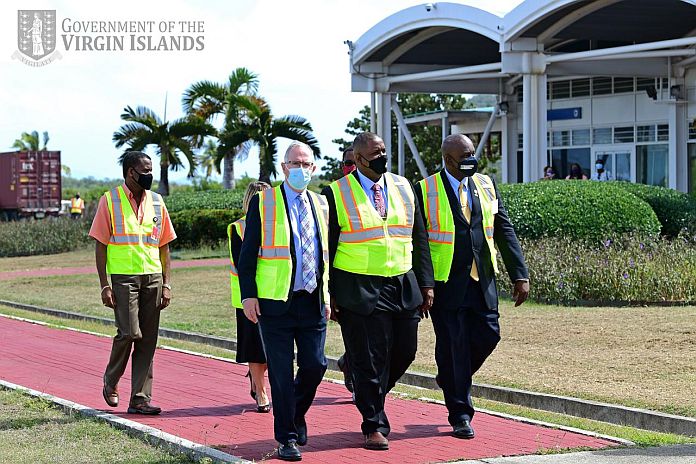By Caribbean News Global contributor
British Virgin Islands, (BVI) – The first shipment comprising 8,000 doses of the AstraZeneca vaccine arrived in the BVI February 4 on a charter flight from the United Kingdom.
Premier and Minister of Finance, Andrew A. Fahie; Governor John Rankin, CME; minister for health and social development Carvin Malone; acting chief medical officer, Dr Ronald Georges and minister for transportation works and utilities, Kye Rymer were in attendance to receive the vaccines.
Premier Fahie thanked the United Kingdom for the ongoing partnership in helping people and saving lives, commended the minister for health, the public health teams and working committees that have been leading the way, as well as governor Rankin for his quick and active role in doing the necessary work contributing to the COVID-19 response.

“The Virgin Islands has done very well so far to keep the number of [COVID-19] cases to a minimum because of the protocols that have been put in place and because the people in the community have bought into those protocols. The vaccine is indeed a game-changer in helping us to return to normality,” said governor Rankin.
According to chief medical officer, Dr Ronald Georges s the vaccine is a potential game-changer for the BVI and COVID-19.
“If we get as many persons in our population vaccinated as possible, it is going to change the way we handle our restrictions and all the things we have to do related to COVID-19,” Dr Georges said. He added, “This is going to make sure that we have a large number of our population potentially immune to the disease. We all know the impact that COVID-19 has had on our society and our economy and all spheres of life in the BVI; by having our population covered and immune, we can now look at returning to some degree of normalcy.”
The vaccines will be administered in a phased approach as follows:
Phase 1- Healthcare and frontline workers;
Phase 2 – People with underlying conditions that put them at risk of severe COVID-19 disease or death, and persons over 60 years;
Phase 3 – Essential workers at high risk of exposure (eg. teachers, school staff, workers and persons in care homes, shelters, prisoners and prison staff, and hospitality workers);
Phase 4 – Young adults; and,
Phase 5 – All remaining residents.





